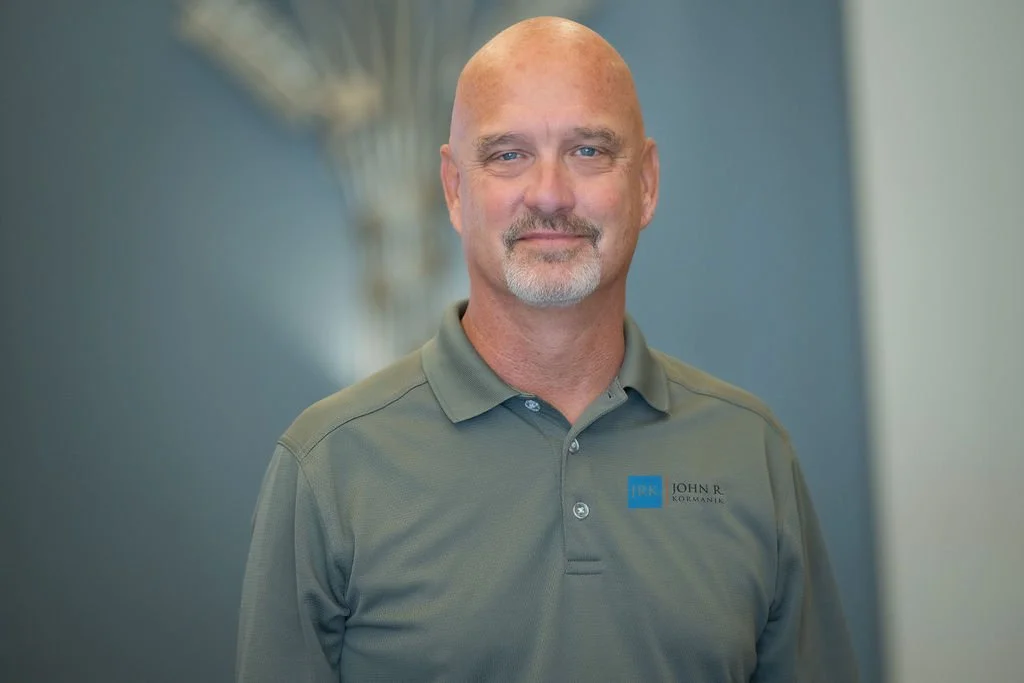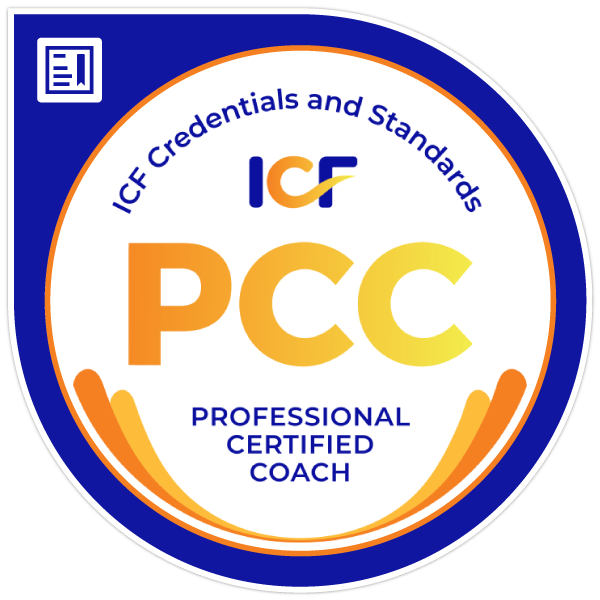You’ve heard the expression “wearing multiple hats”? It means, as an individual, we’re operating in two (or more) distinct, and often disparate, areas or functions. Attorneys do this on the daily. Because every attorney is also the CEO of their law practice, it’s a feature, not a bug, of the practice of law. Simply “switching hats” sounds simple, but it is, in fact, far from easy. A client story provides an example and roadmap.
Consistency Is Key: A Deep Dive To Reveal The Real Reason You Are Inconsistent.
If you’re being honest with yourself, you are inconsistent. Sure, you may perform at a high level occasionally, or even frequently, in one area of your life, but other than those instances, your performance, focus, and output are up-and-down. In other words, writ large, you are inconsistent and it’s absolutely destroying your ability to achieve big goals, drive your law firm and practice forward, and live the life you want.
Transforming Stress Into Success: Why Embracing 'Yester-Me' is the Ultimate Productivity Tool
In a world that demands us to be perpetual planners, it's easy to feel overwhelmed by our own ambitious agendas. But what if the key to mastering productivity and reducing stress lies in changing how we view our past selves? In this blog post, I delve into my personal journey of grappling with 'yester-me,' the version of myself who plans for today. Spoiler: your past self isn't your enemy; it's your most underutilized ally in personal and professional growth. Read on to discover how this mindset shift can make you more effective, less stressed, and bring you one step closer to your goals.
Want to Lead More Effectively? Master 9 Essential Competencies to Transform from a Good Leader into an Elite Leader.
Unlock the keys to effective leadership with these 9 essential competencies. From emotional intelligence and clear communication to time mastery and productivity, discover how mastering these skills can transform you into a more effective leader and empower your team to excel in today's complex work environment.
For Immediate Release
International Coaching Federation PCC badge
JOHN R. KORMANIK OF KORMANIK COACHING EARNS DISTINGUISHED PROFESSIONAL CERTIFIED COACH CREDENTIAL FROM THE INTERNATIONAL COACHING FEDERATION
BOISE, ID, June 19, 2023 - John R. Kormanik, Founder and Head Coach of John R. Kormanik Coaching, is proud to announce that he has earned the prestigious Professional Certified Coach (PCC) credential from the International Coaching Federation (ICF).
Achieving this certification signifies John has met exhaustive education and real-world experience requirements set forth by the ICF, including completion of stringent education and practice requirements, as well as demonstrating a thorough understanding of the ICF core competencies. John joins a select group of coaches worldwide who hold this distinguished credential.
“As a retired attorney, 3 time Ironman finisher, and self-admitted perfectionist, I am immensely proud to earn this credential from the International Coaching Federation," said John. "The rigorous training and assessment have refined my coaching skills and deepened my commitment to delivering the highest quality of service to my clients. I am looking forward to utilizing my enhanced skills to provide even more effective coaching to enable individuals and organizations realize their full potential."
John’s focus lies in leadership and performance coaching, empowering clients improve their productivity, develop leadership capabilities, and achieve personal and professional growth. His coaching is grounded in the belief that with the right support and tools, everyone can unlock their full potential and lead fulfilling, impactful lives.
This credential evidences John’s commitment to professional standards in coaching and underlines his dedication to his clients' success. As a PCC, John must adhere to the strict ICF Code of Ethics, which ensures confidentiality, professional conduct, and the highest ethical standards in the coaching profession.
About John R. Kormanik Coaching
John R. Kormanik Coaching is a leading international coaching firm based in Boise, Idaho. Founded by John R. Kormanik, the firm offers specialized coaching services to lawyers and law firms seeking to enhance their leadership skills, improve team performance, and achieve their personal and professional goals.
For more information about John R. Kormanik Coaching, visit www.johnrkormanik.com.
Press Contact:
Allison (Allie) Kormanik
allie@johnrkormanik.com
###
Note: This press release is for informational purposes only. The International Coaching Federation does not endorse individual coaches or guarantee the effectiveness of their coaching services.
Growth vs. Fixed: Unraveling The Two Fundamental Mindsets Inspired by Carol Dweck
My last blog post began what will be a series of posts which will discuss various aspects of how the mindset of a lawyer not only more important then their legal knowledge, but is, perhaps, the key to differentiating them from their competition and which will, ultimately, empower them to have the success they desire and the life they deserve. This is entry number two in the series.
Our mindset - the unique perspective from which we perceive our abilities - can significantly shape our lives. The correct mindset influences everything from professional success and personal growth to relationships and life satisfaction. The concept of fixed and growth mindsets, introduced by psychologist Carol Dweck in her groundbreaking book "Mindset: The New Psychology of Success," (which I’ve read multiple times) provides a transformative lens through which we can understand our potential and performance. Let's delve deeper into Dweck's theories and the profound implications of these two fundamental mindsets.
Understanding the Fixed Mindset.
A fixed mindset, as characterized by Dweck, is the belief in static abilities and intelligence. People with a fixed mindset perceive their skills and intelligence as fixed traits. Consequently, they spend more time documenting these qualities rather than developing them. They often shy away from challenges, fearing that failures may reveal their perceived inadequacies. Think: “That’s just the way I am.” “I’ve never been any good at…”
In Dweck's perspective, those with a fixed mindset focus more on proving themselves, thereby losing sight of growth and development. This mindset can limit potential, lead to anxiety, deter creativity, and hinder progress, as it discourages effort and perceives criticism as personal attacks instead of constructive feedback.
Exploring the Growth Mindset.
On the other hand, a growth mindset, according to Dweck, is anchored in the conviction that our abilities and intelligence can be developed through commitment, effort, and a love for learning. Individuals with a growth mindset are open to challenges, perceive failures as opportunities for learning, and view effort as a crucial path to mastery. A growth mindset is critical in various aspects of the legal profession, not the least of which is in litigators. As a criminal defense attorney, someone who litigated cases with, shall we say, difficult facts, I can attest to the necessity of having a growth mindset.
In the growth mindset paradigm, talent and intelligence are seen as starting points. The real focus is on cultivation and growth. This mindset encourages resilience, stimulates continuous learning, and fosters personal and professional development.
Impact of the Two Mindsets.
The distinction between a fixed mindset and a growth mindset has profound implications for how we handle various aspects of our lives, including work, relationships, education, and personal growth. One particular area of potential opportunity is the area of creating clients, marketing, and sales. A fixed mindset can limit our potential, curb our capacity to learn, grow, and adapt to new situations. It creates anxiety about judgment and fosters a fear of failure that stifles progress.
Contrarily, a growth mindset can significantly enhance our potential by fostering a love for learning, promoting resilience, and inspiring us to put in the effort to improve. It enables us to embrace challenges head-on, view failures not as evidence of unintelligence, but as a springboard for growth and stretching our existing abilities.
Cultivating a Growth Mindset.
Recognizing the differences between a fixed mindset and a growth mindset is just the first step. The next step is to consciously cultivate a growth mindset. This process involves understanding that abilities and intelligence are not fixed traits but can be developed over time. In fact, the new science of aging and understanding neuroplasticity (our brains can, and do, continue to change over the span of our lives) prove we possess the ability to evolve over our lifetimes. Embrace challenges as opportunities for growth and see effort not as a weakness but as a pathway to mastery.
Following Dweck's guidance, one powerful technique to cultivate a growth mindset involves the use of the word "yet." Adding "yet" to a negative thought transforms it into a potential for future growth: "I can't do this…yet." Another way of putting it is: “I don’t currently have the skill set, but I’m willing to work on it.”
Conclusion: Your Mindset is Your Choice.
Ultimately, as Dweck asserts, the power to choose our mindset lies within us. We can opt for a fixed mindset, limiting our potential and curtailing our growth, or we can embrace a growth mindset, treating challenges as opportunities, viewing effort as the path to mastery, and unlocking our true potential in the process.
Remember, fostering a growth mindset isn't just about improving our own lives. It can also influence those around us to adopt the same approach, creating a positive ripple effect of growth and improvement. As Dweck says, "In a growth mindset, challenges are exciting rather than threatening. So rather than thinking, oh, I'm going to reveal my weaknesses, you say, wow, here's a chance to grow.”
Partnering with a certified professional coach who understands how the lawyer brain works is one key to developing a growth mindset in all areas of your life.
The Psychology of Self-Talk: A Deeper Look into Our Inner Conversations
From our earliest years, we're taught how to communicate with the world around us. But what about the dialogue we have with ourselves? The conversations you hold in the privacy of your own mind, self-talk, can be just as critical, if not more so, than any you might have with others.
Understanding the Role of Self-Talk.
All of us engage in self-talk. It's that inner voice that narrates our life experiences, offering opinions and interpretations about our experiences, our actions, and the actions of those around us. At its core, self-talk represents the constant interplay between our conscious and subconscious minds, shaping our reality and how we perceive it.
Psychologists believe our self-talk can significantly influence our emotions, attitudes, decisions, and actions. The nature of these self-conversations, whether they're positive or negative, can determine the trajectory of our personal and professional lives.
Separating the Voice in Your Head From You.
When we hear that voice in our head, our self-talk, we oftentimes believe it is us speaking. That’s not an accurate way of thinking of self-talk because it is oftentimes based on who we were, not necessarily who we are, or, more importantly, who we want to be. One key to distinguishing your self-talk from who you are is, frankly, to give it a name other than you. It shouldn’t be a name you associate with a negative person in your life. The name you give your inner voice, especially the one who holds you back with negative self-talk, must be of a fictional individual. By calling the voice someone other than you, you begin to create space between you and the voice. It’s akin to making the switch from the thought “I am angry (or sad, or happy, or frustrated), to “I feel angry (or sad, happy, frustrated). The anger is not who you are. Same with self-talk of the negative kind, it’s simply not who you are.
The Power of Positive vs. Negative Self-Talk.
Self-talk can be categorized as either positive (constructive) or negative (destructive). Positive self-talk encompasses affirmations, constructive criticism, and words of encouragement. This internal pep talk can boost our self-esteem, productivity, and overall mental wellbeing. Negative self-talk, on the other hand, can entail doubt, criticism, and defeatism. Continual indulgence in negative self-talk can contribute to stress, anxiety, and depression.
Understanding this dichotomy is the first step towards leveraging the power of self-talk for personal and professional growth.
Harnessing Self-Talk: Three Action Steps to Take Today (and Tomorrow, and…).
Learning to harness the power of self-talk can be transformative. Here are three practical ways you can start leveraging your inner dialogue for personal and professional success.
Acknowledge and Observe Your Self-Talk: Before we can change our self-talk, we need to become aware of it. Spend some time each day listening to your inner dialogue. Note down the themes, attitudes, and tone of your self-talk. Is it more negative or positive? Are there recurring themes of self-doubt or self-assurance? By understanding your current self-talk habits, you can identify areas that need attention and improvement.
Challenge and Replace Negative Self-Talk: We're often harder on ourselves than anyone else could be. If you observe negative self-talk, challenge it. Ask yourself if what you're saying to yourself is true, or if you're being overly critical. Would you speak to a friend or colleague the way you're speaking to yourself? If not, work on replacing the negative thoughts with more positive, constructive ones. Instead of saying, "I can't do this," try reframing it as, "This will be a challenge, but I'm capable of overcoming it.”
Practice Positive Affirmations: Affirmations are powerful tools for positive self-talk. They are positive statements that you repeat to yourself, designed to combat negative thoughts and beliefs. Regular practice of affirmations can significantly influence your subconscious mind, leading to an improved attitude, better stress management, and increased self-confidence. Craft affirmations that resonate with your goals and aspirations. For example, if you're working towards a promotion, your affirmation could be, "I am competent and deserving of new opportunities.”
The Path Ahead.
While our inner voices are often shaped by past experiences and influences, they're not set in stone. Like any other skill, you can cultivate positive self-talk with awareness, practice, and patience. And the benefits of positive self-talk are manifold, impacting every aspect of our lives – from our mental health to our professional achievements.
As we navigate the professional landscape, understanding and harnessing the power of self-talk can make all the difference between thriving and merely surviving. In the competitive world of business, the power of positive self-talk can help us overcome setbacks, maintain focus and resilience, and propel ourselves towards our goals with conviction and determination.
Our self-talk is a direct reflection of our inner beliefs, perspectives, and attitudes. By making a conscious effort to nourish and strengthen our inner voice with positivity and resilience, we can create a powerful ally within ourselves – one that supports, encourages, and bolsters us at every turn.
Just as we choose our words carefully in professional and social conversations, let's be equally mindful about the dialogue we have with ourselves. For it is this dialogue that ultimately shapes our worldview, the perception of ourselves, and our potential for success.
To sum it up, the power of self-talk extends beyond mere self-affirmation or motivation. It lies in understanding its profound psychological impact and harnessing it effectively for personal and professional growth. If we can master the art of positive self-talk, we gain control over our thought patterns, setting a strong foundation for confidence, productivity, and emotional wellbeing.
3 Bonus Takeaways.
Recognize and monitor your self-talk patterns to identify areas that need improvement.
Challenge and replace negative self-talk with more constructive narratives.
Regularly practice positive affirmations that resonate with your personal and professional goals.
Remember, you are the narrator of your own life. Make sure your self-talk reflects the story you want to tell, and the person you aspire to be.
Do you have any other insights about the power of self-talk? Share your thoughts in the comments section below! Let's keep this crucial conversation going.
As always, if you found this content helpful, feel free to share it with your network.
Not Taking Vacation Because You Feel Guilty? You’re Damaging Your Law Practice!
Are you a lawyer who feels guilty taking vacation? Can you even imagine unplugging for a day, let alone a week or two?
The billable hour requirement doesn’t go away when you do; I get it. Also, no one is going to take the work off of your desk while you’re away, amirite? Plus, you’ve likely bought into several (if not all) of the 5 lies lawyers tell themselves such as: Lie Number 1: I have to grind all the time to be successful; Lie Number 2: If I’m not busy, I’m lazy; and Lie Number 3: If I’m not busy, I’m lazy. If any of this sounds like you (or even if it doesn’t), you should most definitely read on.
Let’s start with some stats with some alarming stats from a recent Washington Post article that caught my eye. “Americans are about half as likely to be taking a vacation in any given week as they were 40 years ago” is the line that caught my eye. Dig deeper, though, and the statistics are even worse! Back in 1980, a measly 3.3% of people were taking vacation on any given week; today, that statistic is a measlier (yes, that’s a word) 1.7%. The article goes on to explain the “drop-off has been driven by our failure to take full-week vacations.”
Lawyers, holding advanced degrees should be, according to the statistics from the same article more likely to take both full week vacations (2.5%) and partial week vacations (2%). But are they properly represented in that data set? In other words, are lawyers actually taking time away from the office to recharge at the rates depicted in the article or, perhaps, less?
Sure, the use of vacation will vary depending on your position. For example, if you’re a true solo, you make take, perhaps a long weekend away, when courts are closed, think national holidays, and nothing else. If you’re a partner at an AM Law 100 firm, you may actually take a full week away totally unplugged. My guess is most lawyers are on a sliding scale that is weighted towards that true solo.
Now let’s talk about the importance of time away, truly away, from the office and work and what benefits would accrue to you, your clients, your firm, your family and friends, and your community. As I’ve spoken about (click here for a recording of my presentation on the basics of flow), the flow cycle consists of the following 4 phases: (1) Struggle; (2) Release; (3) Flow; (4) Recovery. Short (20 minute) periods of recovery daily to maintain your ability to achieve flow, however, aren’t enough in the long run. We need to disconnect, truly disconnect, in order to fully recharge and recover. That time away will redound to the benefit of not only your physical and mental health, but your productivity as well. We need look no further than professional athletes to understand this concept.
Many (if not all) professional athletes step completely away from their chosen sport during the “off season.” Some might look at this model and conclude it does not translate to the law firm environment. To those people, I ask one simple question: Why not? Lawyers are akin to athletes: we have to perform at a high level on a regular basis; our work is often divided into busy and not-so-busy cycles, akin to athletes ramping up for competition, etc. The only real difference is for lawyers, our “muscle” is our brains. Others may think they world-class athletes stay at the top of their game despite their time away. Talk to any Olympian or professional athlete, however, and they’ll tell you they are able to stay at the top of their game because of their time away, not in spite of it.
The benefits of recovery are well known in the athletic context (muscle recovery, cognitive rejuvenation, etc,), similar benefits come to lawyers who take time away: we are better able to perform our work, we are better leaders to our staff, we communicate better with clients, and we show up differently with our families, friends, and in our community.
The downside of not taking sufficient time away, truly away, from your work is an increased potential for burnout, or, worse yet, becoming one of the statistics our industry laments associated with alcohol abuse, depression, stress, and anxiety.
We’re all aware of the mindset “work hard; play hard.” The reality for many lawyers is “work hard; keep on working.” It’s a recipe for disaster.
Jeff Blackburn and Neil Young penned the lyric “it’s better to burnout than to fade away”; if you don’t take time away, this may as well be your mantra. The problem is that mantra hurts everyone. If you burnout, there are clients in the world who will never have the benefit of your unique legal mind; your firm, family, and community will suffer.
Don’t be that lawyer. Take time away.
If you struggle with taking time off and unplugging (or any of the 5 lies), reach out so we can have a conversation.
Flow And The Billable Hour Lawyer
Yesterday, I held a LinkedIn Live event sharing why cultivating a law practice which incorporates the concept of working in a flow state makes imminent sense for any lawyer who has a billable hour requirement. Click here to be directed to the LinkedIn recording; read on for a brief summary of the event.
The death of the billable hour has been talked about for years and, yet, the model just won’t seem to die! When lawyers hear about the benefits of a flow state, they myopically focus on the fact they’ll be 5x (that’s 500%) more productive. That’s the conclusion of a McKinsey Quarterly Report from 2013 and is based on a survey of more than 5,000 executives. That focus ignores the myriad other benefits of incorporating flow into your law practice.
Here are some of the benefits of working in a flow state:
Increased concentration and focus
Increased work product quality
Increased client satisfaction
Reduced potential for burnout
Better work-life blend (balance is a myth)
Increased client satisfaction leads to solid-gold referral sources for your practice. Reduced potential for burnout leads to you working with more purpose and serving clients who need you longer. Better work-life blend will result in you showing up differently for your family and community.
The benefits of having a law practice which incorporates the practice of flow greatly outweigh any “hit” you’ll take to your billable hours. There’s no valid reason not to build a law practice based on flow.






